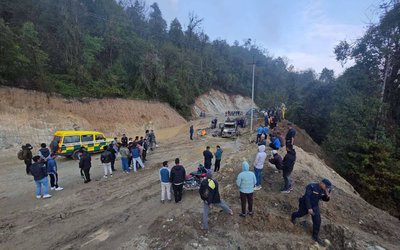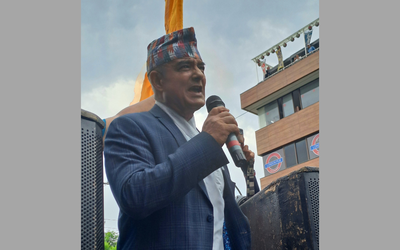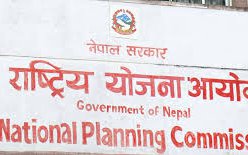
Four areas in Delhi recorded "severe" air quality while 29 areas recorded "very poor" air quality, according to the CPCB data. Delhi's air quality remained in the very poor category Friday despite a slew of measures that were implemented in the national capital ahead of Diwali when a spike in pollution was expected to hit the city.
The Overall Air Quality Index of the national capital was recorded at 368 which falls in the very poor category, according to data by the Central Pollution Control Board.
The PM2.5 level was recorded at 210. Fine particulates can be a matter of more serious health concern than PM10 (particles in the air with a diameter of less than 10 micrometres). Four areas in Delhi recorded "severe" air quality while 29 areas recorded "very poor" air quality, according to the CPCB data.
As per the data by Centre-run System of Air Quality Forecasting And Research (SAFAR), the PM10 level in Delhi stood at 333.
The SAFAR said the AQI of Delhi-NCR would continue to remain in the upper range of the "very poor" category in the next three days.
"This is mainly due to weather conditions as stubble contribution is marginal now. The moisture intrusion over Delhi and surrounding regions due to the westerlies disturbances will increase with effect from November 4 to enhanced holding capacity of atmosphere resulting in increase in PM2.5 levels," the SAFAR website said.
"Winds are calm and it is favourable for stagnation of pollution. Although upper air winds where transport takes place are from stubble burning site but speed and magnitude is low and hence unlikely to impact Delhi air quality significantly," it added.
According to the SAFAR, 9 per cent of PM2.5 pollution in Delhi is caused due to stubble burning.
There is a halt on all construction activities involving excavation in Delhi and other NCR districts. Civil construction has also been suspended, besides closure of all stone crushers and hot mix plants generating dust pollution.
The Delhi Pollution Control Committee has also directed the Transport Department and the traffic police to intensify checking of polluting vehicles and control travel congestion in the region during November 1-10.
Around 43 teams have been formed by the North Delhi Municipal Corporation for night patrolling to check incidents of burning of garbage.
Around 110 vehicles were deployed for sprinkling water on roads besides 12 mechanical dust sweeping machines.The building department also fined owners of 39 sites who were not complying with its directives to check pollution.
Environment Minister Harsh Vardhan Thursday called for an "aggressive plan" to combat pollution in a crucial meeting that was skipped by environment ministers of four states around Delhi, including Haryana and Punjab.
He underlined that the steps taken by states to control stubble burning "are far from satisfactory".
The meeting was called ahead of Diwali to discuss the plan for the next ten days when the pollution level is expected to spike in the national capital due to localised reasons and regional factors like stubble burning. He said despite a decrease in incidents of stubble burning by 30 per cent from the previous year, more needed to be done.

Photo Courtesy: Indian Express
Courtesy: PTI
- India Supported Construction Of Four Schools In Nuwakot
- Mar 19, 2021
- Nepal Denies Permission For Third Phase Trial Of Vaccine Against COVID-19
- Aug 31, 2020
- Messi Can Only Cancel Barcelona Contract If €700 Million Release Clause Is Paid, La Liga Confirms
- Aug 31, 2020
- India To Carry Out Study On Kathmandu-Raksaul Railway
- Aug 28, 2020
- COVID-19: 1,351 Personal Of Nepal Police Infected
- Aug 28, 2020















